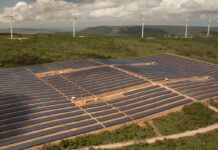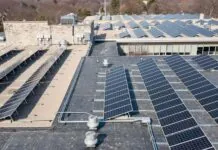
Brazil has officially launched 5G across all 5,570 municipalities. This change means faster internet, better access to online services, and new possibilities for businesses and daily life. While big cities like São Paulo had 5G early on, this rollout ensures smaller towns and rural areas are included too.
🚨BRASIL: A partir desta segunda-feira, a rede 5G pura, de altíssima velocidade, passa a estar disponível em todos os 5.570 municípios do Brasil. pic.twitter.com/ZU1Lne3M6L
— CHOQUEI (@choquei) December 2, 2024
Brazil had to clean up the 3.5 GHz frequency band, which was previously used for satellite broadcasting. This was not easy and required careful planning.
- Over 1,400 satellite stations were moved to prevent interference with 5G signals.
- More than 4.3 million families received free kits to update their satellite TV systems.
- Filters were added to reduce any interference from towers.
Major Steps in the Rollout
Brazil officially approved nationwide 5G on December 2, 2024. Telecom companies now have until 2029 to ensure full coverage in every town and city. In 2024, more than 85% of Brazil’s population already have access to fast internet in nearly 3,700 municipalities.
How 5G Will Improve Lives?
5G is not just about streaming movies faster or gaming without lag. It is expected to make a big difference in several areas:
Rural Areas
Farmers will benefit from real-time data to improve crops. Remote schools will get better internet for online learning. Rural clinics will be able to offer telemedicine services to people far from major cities.
Convidamos você para uma viagem até o sul do Piauí. Lá vamos conhecer a primeira fazenda 5g do Brasil, onde trator pode andar sozinho e toda a plantação é monitorada em tempo real. Este é o futuro, este é o Brasil de Verdade. pic.twitter.com/qZlNtPxCtH
— Casa Civil (@casacivilbr) April 10, 2022
Cities and Businesses
Cities can introduce smarter systems for traffic and public safety. Businesses can grow faster by using better tools like cloud computing and automation.
Education and Jobs
Students can learn online more easily, and new tech jobs will become available, boosting the economy.
Challenges Ahead
While 5G brings many benefits, some issues still need to be addressed.
- Not everyone can afford 5G-ready devices or the cost of faster internet plans.
- It takes time and money to build 5G towers in remote areas.
- People need more education on how to make the most of this new technology.
While Brazil pushes ahead with its plans, it’s also exploring other tech options. Elon Musk’s Starlink service is already available in some rural areas, providing high-speed internet to places where traditional networks struggle. There’s also a partnership with Chinese satellite company Spacesail to improve connectivity in the Amazon region and other hard-to-reach areas.
Elon Musk’s Chinese rival in the satellite internet business plans to start operations in Brazil in 2026, the head of the Shanghai-based company says https://t.co/L0MZ9uGwDZ
— Bloomberg Technology (@technology) November 20, 2024
Interestingly, Musk’s relationship with Brazil has seen its ups and downs. While Starlink is helping with rural internet, there’s been some friction with government officials over regulatory issues related to the X social media platform.
With 5G spreading across the country, expect to see new technologies emerge. From smart agriculture to AI-powered city services, Brazil is positioning itself to compete on a global stage.
For now, though, the focus is on ensuring everyone—from big cities to remote villages—gets access to this technology. Whether it’s through 5G, Starlink, or satellite partnerships, the goal is the same: a more connected, more equal Brazil.










